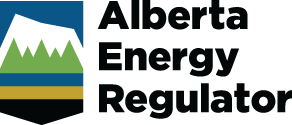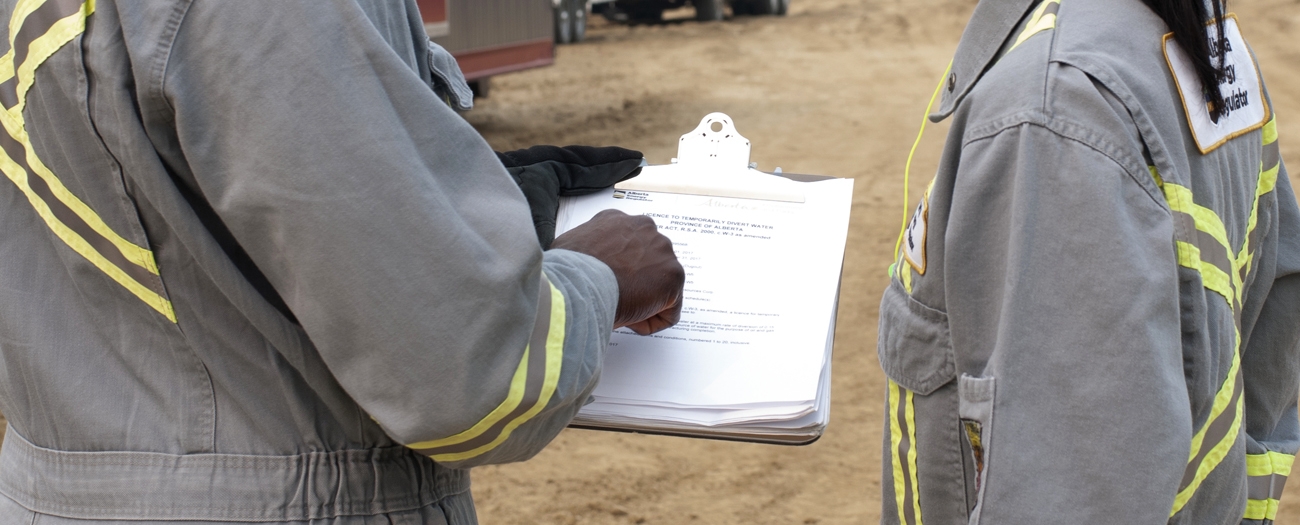Timeline
Our estimated processing time for this application is 45 business days. See our timeline spreadsheet for updates.
Purpose of the Application
Compulsory pooling applications are governed by the Oil and Gas Conservation Act. A company must have a pooling agreement in place before it can apply for compulsory pooling.
What is a pooling agreement?
Under section 4.021 of the Oil and Gas Conservation Rules, no single well can be produced unless there is common ownership throughout the drilling spacing unit (DSU). If there are separate tracts within a DSU with different owners, they must arrange to share the costs and revenues associated with drilling and producing a well from that spacing unit. This is known as a pooling agreement.
In most cases, mineral holders negotiate voluntary pooling arrangements. However, an owner can apply for a compulsory pooling order when
- the owner fails to negotiate a satisfactory pooling arrangement in a reasonable period of time,
- a tract owner is missing and untraceable, or
- there is a dispute about the ownership of a tract.
The order ensures that each owner in the DSU shares the costs and revenues associated with a well in the DSU. We also provide regulatory oversight to resolve pooling-related problems, which gives each owner the opportunity to secure its share of oil and gas from any pool.
Reasons to Apply for Compulsory Pooling
Compulsory pooling applications are made when
- one of the tract owners in the spacing unit is missing and untraceable, under both sections 80 and 85. Section 85 states that the revenues associated with the missing and untraceable owner be paid to the public trustee; and
- there is a dispute about the ownership of a tract or if ownership is unknown, under both sections 80 and 86. Section 86 states that revenues associated with the disputed tract be paid to the provincial treasurer to be held in trust pending an order of the Court of Queen’s Bench, or until a settlement has been reached by the parties.
Process Checklist
Submit an Application
Companies must submit compulsory pooling applications through our Digital Data Submission (DDS) system. We will register each application and assign a reference number.
By submitting an application, the company accepts that its information is no longer confidential.
Things to Remember
- Requirements in the application should be listed in numerical order, as in section 1.5.3 of Directive 065: Resources Applications for Oil and Gas Reservoirs.
- Applicants should check the standard oil or gas spacing for the DSU in question. If there is more than one well, indicate how many wells are planned to be drilled.
- Equipping and tie-in costs should be shared as operating costs under the provisions of a compulsory pooling order.
- We typically do not allow a penalty provision to be applied to Freehold mineral owners that are individuals. We consider these individuals unlikely to have the proper information, background, and resources to decide whether to accept a penalty. These individuals are also unlikely to have the financial resources to pay and avoid penalty.
Review Process
- We share all applications on our Public Notice of Application page to encourage public participation in the approval process. This is in addition to the AER notification mentioned above.
- Anyone who believes they may be directly and adversely affected by an application can file a statement of concern (SOC). If we receive an SOC, it may take us longer to process the application.
- We will assign the application to a subject matter expert for initial review. If information is missing (i.e., the application is not complete and Directive 065 requirements are missing), we will close and return the application. Otherwise, we will proceed with a full technical review.
- We may request additional information (through a supplemental information request) to complete our technical review.
- We will decide to approve, close, or deny the application. If we close it, the applicant may reapply without prejudice. If we deny it, the applicant can file an appeal through our appeal process.
- We will provide the applicant with a link to the letter with our decision, which is accessible through the Integrated Application Registry. We will also share our decision on our Publication of Decision page.
Note that, except in cases involving missing and untraceable owners or minor amendments to existing pooling orders, we typically issue a notice of application once an application is complete. The notice of application is sent directly to parties with an interest in the petroleum or natural gas rights underlying the DSU.


